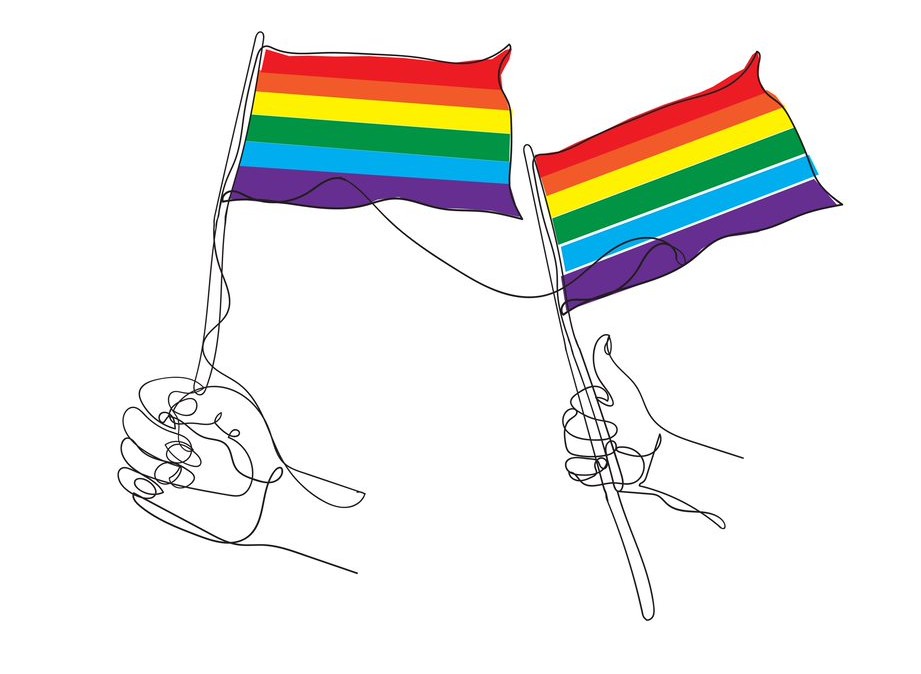June is Pride Month, and a time for us to celebrate the LGBTQ+ community. It’s also a time for us to ensure that we are doing enough to make our spaces as inclusive and affirming as possible.
Galen Hope Co-Founder Dr. Wendy Oliver-Pyatt explains that inclusivity is a vital part of our philosophy:
At Galen Hope, the word Belonging is the first step of our motto about recovery. Belonging and feeling safe create the bedrock for the healing journey. For those who have experienced the isolation and trauma caused by the pain of exclusion or worse, our safe space, where each person’s unique essence is celebrated, is vital to Belonging, Healing, and Growing at Galen Hope.
We take the idea of Belonging so seriously, in fact, that it’s the formal name of our blog!
Daphne Pozo, Galen Hope’s Director of Family Programming, and a leading voice in our Diversity, Equity, and Inclusion (DEI) work, explains more about why Galen Hope is so deliberate about our DEI efforts:
Diversity, equity, and inclusion are the building blocks of belonging, which happens to be one of Galen Hope’s pillars. DEI efforts are crucial because oppressed and marginalized populations would not receive appropriate care without these principles. Especially in mental health where the majority of the theories and research have been focused on White, heterosexual and cis-gender people. Rather than trying to operate from a one size fits all approach, DEI helps us to build a bridge between the research and the diversity within our population.
To make sure that we are undergirding those bridges most strongly, Galen Hope remains, as we have always been, committed to LGBTQ and gender-affirming care.
Affirming Care and Belonging
It’s an unfortunate truth that not all mental health and eating disorder treatment centers are welcoming, inclusive, or affirming for LGBTQ clients. A recent study found, for example, that “many trans people report being misgendered and facing institutional trauma from the medical establishment in the past has led to a situation where many people fail to seek help for eating disorders.”
From the beginning, Galen Hope was determined to be different. Daphne Pozo explains:
Galen Hope practices from a queer affirming approach in which diversity is honored. Rather than approaching clients from a medical/ pathologizing perspective, we work towards creating a community within our milieus. Each milieu, whether it be the adolescent or adult milieu, represents a microcosm of the outside world.
We work with a variety of clients, including queer folk. The staff takes the time to get to know each client, respects each person’s pronouns, provides a safe space for each client to be able to share their own unique story, while also taking into account how being queer has played a role in their life.
The clients we see are multifaceted – being queer is a layer we must acknowledge and understand in order to get to know the essence of that client.
Why LGBTQ inclusivity and affirming care are essential
In past blogs, we’ve shared an array of studies and statistics to support our position on LGBTQ inclusivity and affirming care in eating disorder and mental health treatment. Here, let’s look at why it’s vital to create a safe, supportive, and effective treatment environment that acknowledges and addresses the unique experiences and needs of LGBTQ individuals.
Addressing unique challenges
LGBTQ individuals may face distinct challenges and stressors related to their sexual orientation or gender identity. These can contribute to the development or exacerbation of eating disorders. By incorporating LGBTQ inclusivity into treatment, we can better understand and address these specific challenges.
Building trust and rapport
Eating disorder treatment relies on a strong therapeutic alliance between the individual and their treatment team. LGBTQ inclusivity helps create a safe and affirming environment where individuals feel understood, respected, and validated. This fosters trust and enhances the therapeutic relationship, which is essential for effective treatment outcomes.
Reducing stigma and shame
LGBTQ individuals often face societal stigma and discrimination, which can increase feelings of shame and contribute to mental health issues, including eating disorders. By promoting inclusivity and affirming care, we can help reduce the stigma and shame experienced by LGBTQ individuals. This can contribute to improved self-esteem, body image, and overall well-being.
Addressing mental health comorbidities
LGBTQ individuals may experience higher rates of mental health conditions, such as depression, anxiety, and substance abuse, compared to their heterosexual and cisgender counterparts. Eating disorders often co-occur with these mental health comorbidities. Inclusive and affirming care acknowledges the interconnectedness of these issues and ensures comprehensive treatment for individuals with eating disorders.
It’s important to note that LGBTQ folks aren’t inherently prone to more mental health concerns. Anxiety, depression, trauma etc. tend to occur at a higher frequency in this community due to marginalization, discrimination, and (often) less access to peer, family, or behavioral health support.
Tailoring treatment approaches
LGBTQ individuals may have unique experiences, identities, and cultural backgrounds that influence their perceptions of body image, gender, and sexuality. By incorporating LGBTQ inclusivity into treatment, we can tailor interventions and therapeutic approaches to address these unique factors. This increases the effectiveness and relevance of treatment for LGBTQ individuals with eating disorders.
the road to wellness starts by seeking help. today.
Built on the principles of assertive community treatment, Galen Hope is an eating disorder and mental health treatment center offering individualized treatment options that include Intensive Outpatient (IOP), supported housing, and Partial Hospitalization Programs (PHP). As a “Community of Integrated Wellness,” we pride ourselves in fostering a thoughtful and meaningful care experience that can guide our clients on their road to recovery and increased quality of life, regardless of diagnosis. Galen Hope currently offers separate, age-specific programming for adolescents ages 12-17 and adults 18 and up, of all genders.
To learn more, or to join our community for integrated wellness, please contact us today.
Belong. Heal. Grow.

